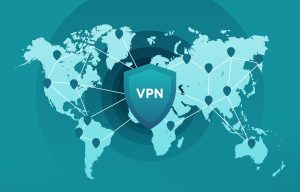
In remote technical support, the transmission of data is a crucial aspect that needs to be carefully monitored and secured. With the increasing concerns around cyber threats and data breaches, it is important to ensure that the transmission of data is done in a secure manner. One of the ways to achieve this is through the use of Virtual Private Networks (VPNs).
In this article, ardent bay, as an IT Solutions agency will discuss how VPNs can help ensure the secure transmission of data in remote technical support, from a different perspective than what has been discussed earlier.
Understanding VPN
- What is VPN?
- How does VPN work?
- Types of VPN
Transmission of Data in Remote Technical Support
- Importance of data transmission
- Security concerns around data transmission
- Why is secure data transmission important in remote technical support?
VPN and Secure Data Transmission
How VPN ensures secure data transmission
- Benefits of using VPN in remote technical support
Limitations of VPN
Setting up VPN for Remote Technical Support
Choosing the Right VPN service
- Configuring VPN for remote technical support
Best practices for using VPN in remote technical support
Conclusion
Summary of key points
- The importance of using VPN in remote technical support
Understanding VPN:
VPN stands for Virtual Private Network, which creates a secure and encrypted connection between two devices over the internet. It enables users to access the internet securely and anonymously by creating a private network from a public internet connection.
Transmission of Data in Remote Technical Support:
In remote technical support, the transmission of data is a critical aspect that needs to be handled with care. The importance of data transmission is that it allows technicians to remotely access and control devices, troubleshoot technical issues, and provide support to customers.
However, the transmission of data comes with several security concerns, such as interception, eavesdropping, and unauthorized access. This is why secure data transmission is crucial in remote technical support.
VPN and Secure Data Transmission:
VPNs play a vital role in ensuring the secure transmission of data in remote technical support. VPNs encrypt data and create a secure tunnel between the two devices that are communicating, which means that any data transmitted over the VPN is secure and protected from prying eyes.
The benefits of using a VPN in remote technical support include enhanced security, improved privacy, and the ability to access restricted content. However, it is important to note that VPNs also have limitations, such as reduced internet speed and potential compatibility issues.
Setting up VPN for Remote Technical Support:
To ensure secure data transmission in remote technical support, it is essential to choose the right VPN service that meets the specific requirements of your business.
Once you have selected a VPN service, configuring it for remote technical support is relatively simple, and there are several best practices to follow to maximize its effectiveness.
Conclusion:
In conclusion, the use of VPNs in remote technical support is crucial for ensuring the secure transmission of data. By using VPNs, businesses can improve their security posture, protect customer data, and enhance their overall customer support experience. As remote technical support becomes increasingly common, the use of VPNs will only continue to grow in importance.
FAQs:
Is VPN necessary for remote technical support?
Yes, VPN is necessary for remote technical support to ensure the secure transmission of data.
Can VPN slow down internet speed?
Yes, VPN can slow down internet speed due to the encryption process.
How do I choose the right VPN service for remote technical support?
Look for VPN services that offer strong encryption


